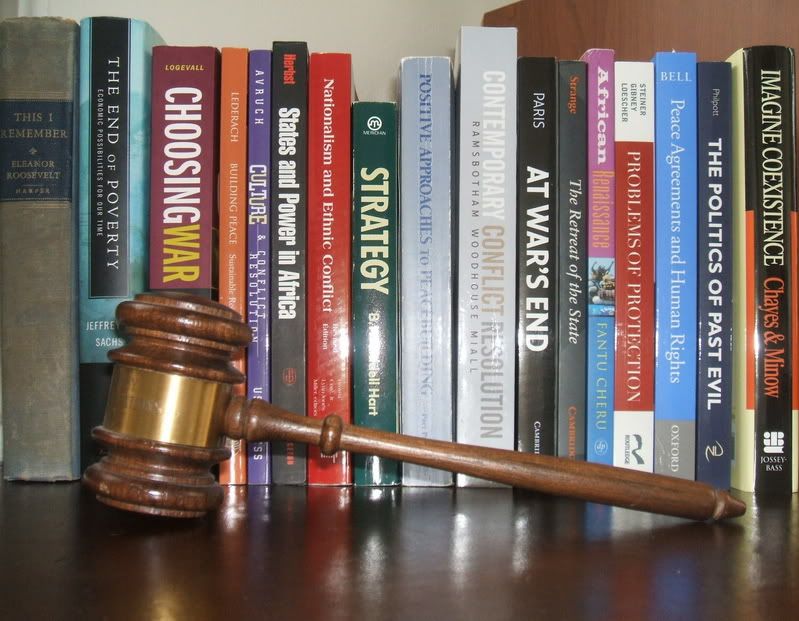For the past week or so, I've been trying to wrap my brain around U.S. policy toward Africa, in light of a presidential visit, the FY09 budget request, and the development of events on the ground.
First, an incredibly brief synopsis of the current security situation in Africa. The Ethiopian/U.S. intervention in Somalia has basically failed to bring security to the country, and has possibly made it worse. The whole point of supporting intervention in the first place was to root out terrorist threats there, but that obviously can't be done in a context of more generalized fighting. Just up the road, Ethiopia and Eritrea are in a period of heightening tensions, with Eritrea basically thwarting the UN peacekeeping mission along the border. Looking a little further west, implementation of the CPA in Sudan is more precarious than ever, the Darfur peacekeeping operation is pretty much stalled, fighting continues in Chad and C.A.R., which has led to refugees now flowing into Cameroon, and the EU peacekeeping mission for Chad/C.A.R. is basically on hold. There's a bit of hope that we might soon see some positive progress in Northern Uganda, and if so, that process might require some greater international assistance. Things in the eastern Congo are still tenuous. Who knows what will happen in Zimbabwe. Meanwhile, the countries of the Mano River Basin in West Africa are on the long, slow road to recovery, and need support.
In this context (or, perhaps, in spite of it), the Bush Administration has proposed a dramatic cut to its financial support to UN peacekeeping, which of course is in addition to our existing arrears to the peacekeeping fund. Instead, they propose focusing more exclusively on various troop training/peacekeeping capacity building programs through bilateral agreements. These programs have existed for several years now, under a huge variety of names, but generally focus on generating more professional armed forces that are trained in the intricacies of peace and stability operations. Although some somewhat shady partners get help through these programs (like Ethiopia), in general I think they're a good thing.
So what's the problem then? It's pretty simple, actually. All the trained troops in the world won't make a peacekeeping operation effective. Those troops need equipment, transportation, weaponry of various types (beyond the assortment provided through the programs above), and most importantly, civilian leadership in each mission. What's the point of having a bunch of trained troops if there aren't any missions to send them to? A peace operation is usually a pretty complex undertaking, and well-trained, professional security forces are but one part of them. With the number of UN and African Union peace operations continuing to increase in Africa, it is essential that the Administration look at the whole picture when making policy and budgetary decisions of this sort.
If, then, the Bush Administration thinks they're somehow promoting peace and stability in Africa through their robbing Peter to pay Paul funding logic, they definitely have another thing coming. If their proposal makes it into the actual 2009 budget (and based on last year's stunning performance by Congressional Democrats, it likely will), this will become yet another foreign policy mess that the next administration will have to clean up.





